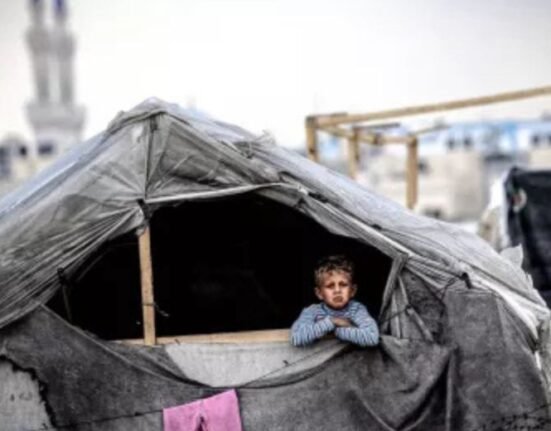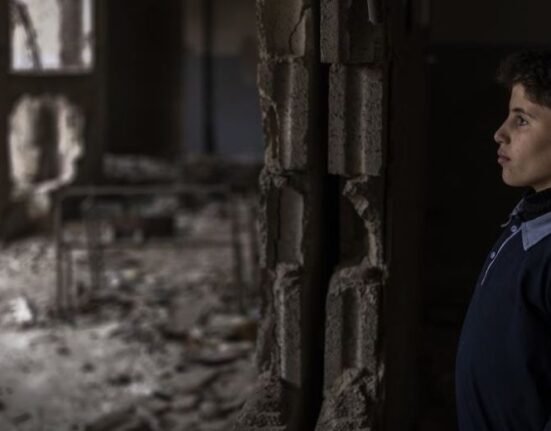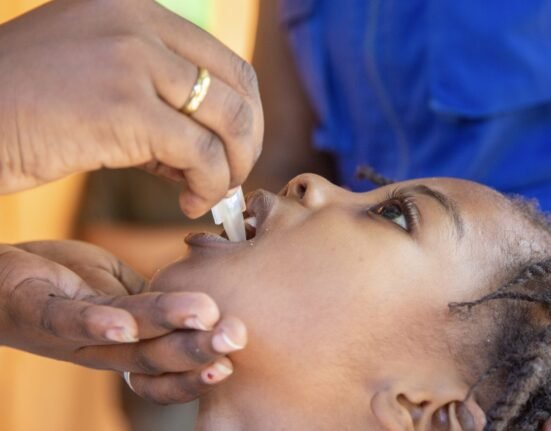HQ Team
April 17, 2025: Escalating hostilities and limited access to medical supplies are exacerbating an already dire humanitarian crisis in Gaza depriving civilians of shelter, food and medicine, the UN warns.
More than half a million people are reported to have been newly displaced since March 18, many of them uprooted multiple times due to ongoing military operations across the Gaza Strip.
Ground conditions are deteriorating rapidly, with critical shortages in basic supplies and growing malnutrition, especially among children.
Ninety per cent of Gaza’s current population of 2.1 million people has been displaced, lacking access to sufficient shelter, food, life-saving medical services, clean water, education and livelihoods, according to the United Nations Office for the Coordination of Humanitarian Affairs (OCHA).
“Tents are no longer available for distribution,” UN spokesperson Stéphanie Tremblay told journalists in New York, according to a statement.
Authorities deny humanitarian missions
She noted that families in Bani Suhaila, Khan Younis Governorate, recently received only minimal quantities of blankets and tarpaulins. Displaced populations in Khan Younis reported overcrowded shelters and a dire lack of food, water, and medicine.
Children are among the worst affected. In March, the number of children receiving supplementary feeding declined by more than two-thirds, according to humanitarian partners, raising concerns of acute malnutrition amid collapsing health services.
Humanitarian aid workers are finding it increasingly difficult to operate as no aid has entered Gaza for now. “We are now in the seventh week of this and as military operations expand.
“Meanwhile, the OCHA tells us that Israeli authorities continue to deny planned coordinated missions.“
Limited medical supplies
On April 16, “only two out of six planned humanitarian movements that were coordinated with the Israeli authorities, were facilitated. The remaining four were denied, including one mission to retrieve fuel from Rafah, which as you can imagine is urgently needed.”
In addition, hospital operations are further strained by limited access to medical supplies.
“Today, only two out of six planned humanitarian movements that were coordinated with the Israeli authorities were facilitated. The remaining four were denied, including one mission to retrieve fuel from Rafah, which as you can imagine is urgently needed,” she said.
Despite insecurity and access limitations, humanitarian organizations continue efforts to help vulnerable families. Community kitchens across Gaza prepare more than one million meals daily, but that remains insufficient for most of the 2.1 million people in the enclave who rely on aid for basic sustenance.
‘Killing field’
On April 8, António Guterres, UN Secretary-General, repeated his call for a renewed ceasefire between Israel and Hamas, and the release of all hostages still being held inside the shattered enclave.
Meanwhile, the ceasefire announced in January following 15 months of war has collapsed, amid airstrikes, renewed ground operations and rocket launches into Israel by Palestinian militants.
The conflict began on October 7, 2023, when Hamas and other Palestinian militant groups abducted 251 people from Israel to the Gaza Strip including children, women, and elderly people
“As aid has dried up, the floodgates of horror have re-opened,” Mr. Guterres said. “Gaza is a killing field – and civilians are in an endless death loop.”
International law
The truce allowed for the release of hostages, as well as the distribution of lifesaving aid, and proved that the humanitarian community could deliver.
While UN agencies and partners stand ready and determined to deliver, “the Israeli authorities newly proposed ‘authorization mechanisms’ for aid delivery risk further controlling and callously limiting aid down to the last calorie and grain of flour,” the Secretary-General said.
“Let me be clear: We will not participate in any arrangement that does not fully respect the humanitarian principles: humanity, impartiality, independence and neutrality.”
Guterres said unimpeded humanitarian access must be guaranteed, and humanitarian personnel must be given protection, in line with international law.








